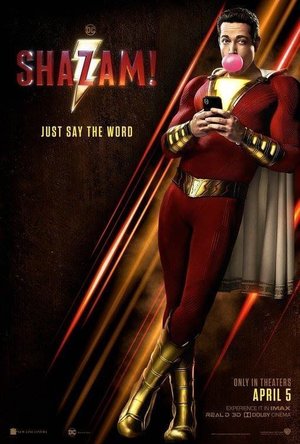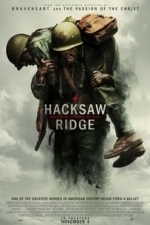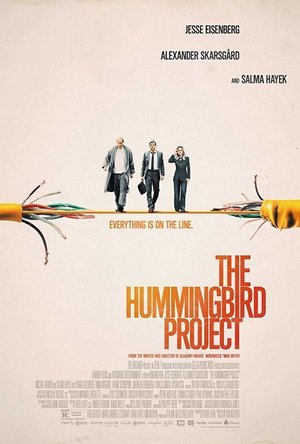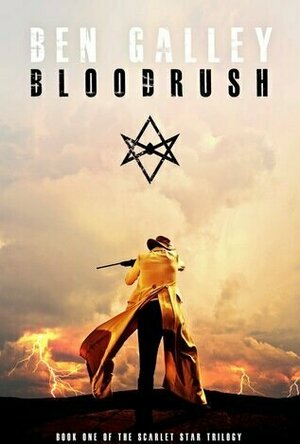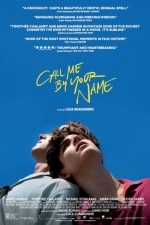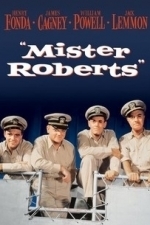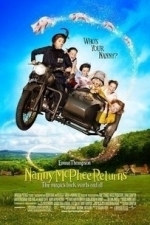Search
Search results
Ryan Hill (152 KP) rated Shazam! (2019) in Movies
Jun 22, 2019
"i'd like to purchase some of your finest beer please"
Shout "Shazam!" into the sky and you're struck by a bolt of lightning from the heavens; blessed with the wisdom of Solomon, the strength of Hercules, the stamina of Atlas, the power of Zeus, the courage of Achilles and the speed of Mercury. Instantly elevated from whatever you were into your peak self; reborn with a crack of thunder, a flash of light and a cloud of smoke. It's a wonderfully novel and simple idea for a comic book character. Something that allows for a spectacular hero moment right before each conflict or feat; an epic bit of imagery to light up the night sky and electrify the frame. This transformation also perfectly captures the spirit of both this film and it's hero; a belief in the idea that even the most forgotten, marginalized and seemingly powerless person can change the world.
Shazam! distinguishes itself as DC's first true crack at a comedy; also it's lightest and most modest effort yet. There's a really nice commitment to the lofty, somewhat ridiculously mythological source material here. There's little liberty taken with Shazam's campy world of wizards, demons and magic; the attitude towards these elements can best be described as self-aware without being self-conscious. The jokes almost all land and there's charm oozing out of every frame. Loads of heart, tons of humor and a true fidelity to childhood joy make this such a uniquely enjoyable flick; and an impressively confident approach to a hero that soars due to it's big personality and earnest attitude.
Our hero's journey here boils down to a kid learning to care about a world that has never bothered to care about him. Abandoned as a child and shuttled through the foster system; the explanation and depiction of Billy Batson's unenviable situation is irreverent and laced with sarcasm, true to how teens often confront traumas that imply vulnerability. The film allows these kids to be kids; meaning they're impulsive and ill-equipped for the situation they're in; and often crude and frustratingly ignorant to a seemingly obvious truth. The premise lends itself to a close look at responsibility and purpose; basically a feature length look at a lost kid reclaiming his identity and finding a family. The point at which Billy truly becomes a hero with something to fight for is powerful; a simple but big-hearted affirmation of the importance of connection and love, especially to a kid who's never allowed himself to know either.
Superhero stories can impart lessons in a variety of ways. Both on the page and on the screen; there's a wide array of films that all excel in their own specific way; shaping themselves in the image of their hero, and what he/she means to readers around the world. Shazam! distinguishes itself spectacularly as a film about what constitutes a family, and how that family reflects who we are. There's a powerful yearning in Billy for a connection; someone or something to fight for. A desperate desire for love and support; to feel like a part of something in some way. There's a meaningful, deeply human core to that concept; something universal and immediately affecting. Shazam! understands this from the start; setting aside the punchsplosians and skybeams for a moment, to remind us that sometimes a kid looking for his mom can be as compelling than the threat of planetary destruction. So bring on Joker, Birds of Prey, Wonder Woman 1984 and whatever else DC has in it's chaotic, ever-changing slate of planned superhero flicks; they're on a roll right now.
Shazam! distinguishes itself as DC's first true crack at a comedy; also it's lightest and most modest effort yet. There's a really nice commitment to the lofty, somewhat ridiculously mythological source material here. There's little liberty taken with Shazam's campy world of wizards, demons and magic; the attitude towards these elements can best be described as self-aware without being self-conscious. The jokes almost all land and there's charm oozing out of every frame. Loads of heart, tons of humor and a true fidelity to childhood joy make this such a uniquely enjoyable flick; and an impressively confident approach to a hero that soars due to it's big personality and earnest attitude.
Our hero's journey here boils down to a kid learning to care about a world that has never bothered to care about him. Abandoned as a child and shuttled through the foster system; the explanation and depiction of Billy Batson's unenviable situation is irreverent and laced with sarcasm, true to how teens often confront traumas that imply vulnerability. The film allows these kids to be kids; meaning they're impulsive and ill-equipped for the situation they're in; and often crude and frustratingly ignorant to a seemingly obvious truth. The premise lends itself to a close look at responsibility and purpose; basically a feature length look at a lost kid reclaiming his identity and finding a family. The point at which Billy truly becomes a hero with something to fight for is powerful; a simple but big-hearted affirmation of the importance of connection and love, especially to a kid who's never allowed himself to know either.
Superhero stories can impart lessons in a variety of ways. Both on the page and on the screen; there's a wide array of films that all excel in their own specific way; shaping themselves in the image of their hero, and what he/she means to readers around the world. Shazam! distinguishes itself spectacularly as a film about what constitutes a family, and how that family reflects who we are. There's a powerful yearning in Billy for a connection; someone or something to fight for. A desperate desire for love and support; to feel like a part of something in some way. There's a meaningful, deeply human core to that concept; something universal and immediately affecting. Shazam! understands this from the start; setting aside the punchsplosians and skybeams for a moment, to remind us that sometimes a kid looking for his mom can be as compelling than the threat of planetary destruction. So bring on Joker, Birds of Prey, Wonder Woman 1984 and whatever else DC has in it's chaotic, ever-changing slate of planned superhero flicks; they're on a roll right now.
Gareth von Kallenbach (980 KP) rated Hacksaw Ridge (2016) in Movies
Jul 15, 2019
World War II was an event that changed America’s standing globally and ensured the end of Hitler’s tyranny over Europe. It witnessed an isolated nation enter the war after being attacked by the Japanese at Pearl Harbor. The war forced men from all walks of life to step up in defense of their nation and for the freedom of those abroad. Desmond Dawes was one of these men, however, he sought to serve a different function in war. Instead of taking lives, he wanted to save them.
Hacksaw Ridge brings viewers a different perspective of war and the soldiers that were fighting it. Unlike previous films, this one discusses and displays the contributions made by a pacifist, a contentious objector, something that we look at as an anomaly and counter to the personalities and individuals that we are accustomed to seeing in a warfighting capacity. We don’t typically think about those who would resist fighting, other than those who dodged the draft or sought deferments. This film allows for a glimpse into how one man’s principles and faith allow him to resist actively fighting in order to serve as a combat medic in order for his fellow soldiers to return home. The story is harrowing and audiences will find themselves rooting for Private Dawes while questioning how his principles could remain so strong despite all of the obstacles that are put in his way. He wants to serve his country in the war, but does not want to kill in service to it. He is constantly referred to and treated as a coward for his stance. Despite this, he proves himself of heroism that cannot be measured.
The film is beautiful in displaying the various complexities in warfare and individual soldiers’ experiences. We get to see how Dawes is shaped into having the beliefs that guide him in his quest to become a soldier. We see the relationships that he develops in his hometown, his family, and the conflict that erupts between him and other members of his unit. We see that war is more complex than men fighting and killing. There is depth. There is character. These men are not simply numbers on a board or text. There is something about each one of them that played into the success of taking Okinawa as part of the Pacific campaign.
Hacksaw Ridge is not simply a film about one man’s journey to serve his principles and God while struggling against various agents seeking to break his spirit and demean who he is. The battle scenes and brutality rival that of Saving Private Ryan. Audiences seeking to see a traditional “rah rah” war film are going to be surprised with the way that this film will, hopefully, make them think more deeply about the calamity and horror of war. It will hopefully have them think about how far we have come as a people. More importantly, it will make us think differently about the men who served and helped to ensure democracy globally.
The film, overall, is strong with its presentation of information, action, sequences and storytelling. It may surpass previous WWII films with respect to significance and allowing itself to serve as a historical lens to the past. Audiences will be satisfied, shocked, and a bit disgusted with what is on display whether it is how war is conducted or in how we treat others with different beliefs or stances. Hacksaw Ridge may be an instant classic in not only its approach to the Pacific Theater, but in how we look at the soldiers and their contributions to this period.
Hacksaw Ridge brings viewers a different perspective of war and the soldiers that were fighting it. Unlike previous films, this one discusses and displays the contributions made by a pacifist, a contentious objector, something that we look at as an anomaly and counter to the personalities and individuals that we are accustomed to seeing in a warfighting capacity. We don’t typically think about those who would resist fighting, other than those who dodged the draft or sought deferments. This film allows for a glimpse into how one man’s principles and faith allow him to resist actively fighting in order to serve as a combat medic in order for his fellow soldiers to return home. The story is harrowing and audiences will find themselves rooting for Private Dawes while questioning how his principles could remain so strong despite all of the obstacles that are put in his way. He wants to serve his country in the war, but does not want to kill in service to it. He is constantly referred to and treated as a coward for his stance. Despite this, he proves himself of heroism that cannot be measured.
The film is beautiful in displaying the various complexities in warfare and individual soldiers’ experiences. We get to see how Dawes is shaped into having the beliefs that guide him in his quest to become a soldier. We see the relationships that he develops in his hometown, his family, and the conflict that erupts between him and other members of his unit. We see that war is more complex than men fighting and killing. There is depth. There is character. These men are not simply numbers on a board or text. There is something about each one of them that played into the success of taking Okinawa as part of the Pacific campaign.
Hacksaw Ridge is not simply a film about one man’s journey to serve his principles and God while struggling against various agents seeking to break his spirit and demean who he is. The battle scenes and brutality rival that of Saving Private Ryan. Audiences seeking to see a traditional “rah rah” war film are going to be surprised with the way that this film will, hopefully, make them think more deeply about the calamity and horror of war. It will hopefully have them think about how far we have come as a people. More importantly, it will make us think differently about the men who served and helped to ensure democracy globally.
The film, overall, is strong with its presentation of information, action, sequences and storytelling. It may surpass previous WWII films with respect to significance and allowing itself to serve as a historical lens to the past. Audiences will be satisfied, shocked, and a bit disgusted with what is on display whether it is how war is conducted or in how we treat others with different beliefs or stances. Hacksaw Ridge may be an instant classic in not only its approach to the Pacific Theater, but in how we look at the soldiers and their contributions to this period.
Phillip McSween (751 KP) rated Forgetting Sarah Marshall (2008) in Movies
Jan 15, 2019
Classic
A man goes to Hawaii to forget about his celebrity ex-girlfriend…only to find that she’s staying at the same resort with her new dude.
Acting: 10
Jason Segel plays the perfect broken man in his role as Peter. He carries a pitifulness that’s endearing, a guy easy to root for. From a comedic standpoint, his timing is always right there and it feels extremely natural as if we’re being introduced to a real person. I can only think of a handful of actors that could pull off the role as successfully as Segel. A number of other roles solidified the acting in the movie as well, but Segel carried the movie in my opinion.
Beginning: 10
Forgetting Sarah Marshall grabs your funny bone from jump and sets the tone. The first ten minutes introduces us to Peter as we watch him go about his boring, but hilarious day. Everytime I think about the breakup scene between him and Sarah (Kristen Bell), it still cracks me up. You knew right away the rest of the film was going to be classic.
Characters: 10
The movie sports a solid cast of characters with just enough originality to keep things interesting without going overboard. You’ve got Rachel (Mila Kunis), the badass front desk attendant who gives Peter a reason to enjoy life again. Then there’s the British rockstar and the hotel attendant who is obsessed with him. I could go on as these are just a handful of the crew that make this movie shine.
Cinematography/Visuals: 10
Conflict: 10
Genre: 10
Others won’t agree, but this is the funniest movie I’ve ever seen. It has everything we want in a comedy. It’s funny without having to go over the top to try. It succeeds with a comical real-life premise that has the right characters surrounding it. Not only does it make you laugh, but it makes you feel as well. But, most importantly, it makes you laugh…A LOT. It hits you with several different types of funny from the characters themselves to the subtle jabs.
Memorability: 10
A classic movie has scenes that stick out in your head for years to come. Forgetting Sarah Marshall has a number of those scenes. When the towel drops. Peter crying naked on the floor then having to defend himself. Dracula musical. The surf scene. I could go on…These are scenes that, by themselves, could make a movie memorable. Together, they made Forgetting Sarah Marshall a classic.
Pace: 10
Plot: 10
I know what you’re thinking. What are the chances he goes on vacation and ends up at the exact same resort as his ex at the same exact time? I thought about this a lot and concluded that it could have been completely conceivable that Peter and Sarah had talked about that resort in the past. Alternatively they could have even had plans to go to that resort together during that week and the breakup changed that. Ultimately I decided it didn’t need to completely make sense. It’s a comedy and it’s unique enough for me to not have gotten bogged down in the “how”.
Resolution: 10
Starts just like it ends: Perfectly. It fits both for Peter and Rachel, definitely putting a smile on my face. It works on a lot of levels, touching but still maintaining the level of humor that carried the film to this point.
Overall: 100
A film is always the sum of its parts. Forgetting Sarah Marshall does everything right and then some. From its beautiful cinematics (thank you, Hawaii) to downright perfect pacing, it succeeds on every level. Classic.
Acting: 10
Jason Segel plays the perfect broken man in his role as Peter. He carries a pitifulness that’s endearing, a guy easy to root for. From a comedic standpoint, his timing is always right there and it feels extremely natural as if we’re being introduced to a real person. I can only think of a handful of actors that could pull off the role as successfully as Segel. A number of other roles solidified the acting in the movie as well, but Segel carried the movie in my opinion.
Beginning: 10
Forgetting Sarah Marshall grabs your funny bone from jump and sets the tone. The first ten minutes introduces us to Peter as we watch him go about his boring, but hilarious day. Everytime I think about the breakup scene between him and Sarah (Kristen Bell), it still cracks me up. You knew right away the rest of the film was going to be classic.
Characters: 10
The movie sports a solid cast of characters with just enough originality to keep things interesting without going overboard. You’ve got Rachel (Mila Kunis), the badass front desk attendant who gives Peter a reason to enjoy life again. Then there’s the British rockstar and the hotel attendant who is obsessed with him. I could go on as these are just a handful of the crew that make this movie shine.
Cinematography/Visuals: 10
Conflict: 10
Genre: 10
Others won’t agree, but this is the funniest movie I’ve ever seen. It has everything we want in a comedy. It’s funny without having to go over the top to try. It succeeds with a comical real-life premise that has the right characters surrounding it. Not only does it make you laugh, but it makes you feel as well. But, most importantly, it makes you laugh…A LOT. It hits you with several different types of funny from the characters themselves to the subtle jabs.
Memorability: 10
A classic movie has scenes that stick out in your head for years to come. Forgetting Sarah Marshall has a number of those scenes. When the towel drops. Peter crying naked on the floor then having to defend himself. Dracula musical. The surf scene. I could go on…These are scenes that, by themselves, could make a movie memorable. Together, they made Forgetting Sarah Marshall a classic.
Pace: 10
Plot: 10
I know what you’re thinking. What are the chances he goes on vacation and ends up at the exact same resort as his ex at the same exact time? I thought about this a lot and concluded that it could have been completely conceivable that Peter and Sarah had talked about that resort in the past. Alternatively they could have even had plans to go to that resort together during that week and the breakup changed that. Ultimately I decided it didn’t need to completely make sense. It’s a comedy and it’s unique enough for me to not have gotten bogged down in the “how”.
Resolution: 10
Starts just like it ends: Perfectly. It fits both for Peter and Rachel, definitely putting a smile on my face. It works on a lot of levels, touching but still maintaining the level of humor that carried the film to this point.
Overall: 100
A film is always the sum of its parts. Forgetting Sarah Marshall does everything right and then some. From its beautiful cinematics (thank you, Hawaii) to downright perfect pacing, it succeeds on every level. Classic.
Gareth von Kallenbach (980 KP) rated The Hummingbird Project (2018) in Movies
Jul 2, 2019
Contemporary technology drama comes to the silver screen in the form of The Hummingbird Project starring Jesse Eisenberg, Alexander Skarsgård, and Salma Hayek. The film’s premise is realistic enough: A pair of insiders at a big Wall Street company defect to start a project for a rival firm – to built a single fiber optic connection between a stock exchange in Kansas City and the New York Stock Exchange. This was realistic enough that my lack of knowledge on the history of Wall Street’s networking had me looking up later to see if there was any truth or basis to portions of the plot. Unfortunately, I can’t seem to find anything referencing a Kansas City Stock Exchange. Unless they were referring to livestock? Because there was a Kansas City Livestock Exchange. Anyway, my biases up front – despite my clear lacking of aforementioned knowledge, I am a tech geek with experience in networking and related technology fields. So, a premise like this has a lot to attract my attention. There is admittedly much to enjoy about dramas regarding our contemporary plights in the realm of technology, because that’s where a lot of work is centered. Gone are the days of building railroads. But our internet infrastructure…
The film does a fairly good job representing the intense difficulty of such a project: it’s something like one thousand miles of straight line to run one fiber optic connection without obstruction. Most people would not think about what goes into making that into reality, which is the draw for most of the film’s conflict. I do however recognize that centering the plot on a large scale construction job of an internet cable doesn’t exactly scream excitement for most people; and this is especially true when the end goal is to shave off one millisecond from their current transaction times. Yet, this arguably ironic dynamic actually ended up being somewhat of a draw for me. Halfway through the film the question arises, “All this for just a millisecond of increased speed?” That’s the point though, and I wish the film would have delved deeper into these kinds of themes. This represents my chief criticism: all of the elements are here for a truly stellar drama but everything is explored at only a shallow or moderate depth. The characters have decent arcs, thrown some difficult challenges and curveballs to overcome, but Jesse Eisenberg’s character only briefly touches on the back-story that truly drives him, and while Alexander Skarsgård‘s character is more fully fleshed out his arc is essentially basic. I do enjoy the role reversal as one would usually expect to see Jesse Eisenberg playing the socially awkward genius programmer and Alexander Skarsgård to play the ambitious go-getter who runs the project, but they take opposite roles to great effect. The actors all do great here for the most part, including the excellent Michael Mando in a supporting role. My only complaint here is the acting dips a bit into melodrama later in the film, but this is mostly attributed to subplots that edge into the unbelievable.
Ironically Hummingbird Project works best at representing its core premise of what most would consider a mundane construction project. The actors do well, and I especially enjoy Alexander Skarsgård‘s portrayal of the lonely genius, but their underlying drama and back-stories are a bit of a mixed bag. Some of it works decently well while other elements do not – particularly late in the film. Sadly the themes at play are a bit too obvious and underexplored, but it is an appreciated attempt to represent a seldom explored aspect of contemporary industry.
The film does a fairly good job representing the intense difficulty of such a project: it’s something like one thousand miles of straight line to run one fiber optic connection without obstruction. Most people would not think about what goes into making that into reality, which is the draw for most of the film’s conflict. I do however recognize that centering the plot on a large scale construction job of an internet cable doesn’t exactly scream excitement for most people; and this is especially true when the end goal is to shave off one millisecond from their current transaction times. Yet, this arguably ironic dynamic actually ended up being somewhat of a draw for me. Halfway through the film the question arises, “All this for just a millisecond of increased speed?” That’s the point though, and I wish the film would have delved deeper into these kinds of themes. This represents my chief criticism: all of the elements are here for a truly stellar drama but everything is explored at only a shallow or moderate depth. The characters have decent arcs, thrown some difficult challenges and curveballs to overcome, but Jesse Eisenberg’s character only briefly touches on the back-story that truly drives him, and while Alexander Skarsgård‘s character is more fully fleshed out his arc is essentially basic. I do enjoy the role reversal as one would usually expect to see Jesse Eisenberg playing the socially awkward genius programmer and Alexander Skarsgård to play the ambitious go-getter who runs the project, but they take opposite roles to great effect. The actors all do great here for the most part, including the excellent Michael Mando in a supporting role. My only complaint here is the acting dips a bit into melodrama later in the film, but this is mostly attributed to subplots that edge into the unbelievable.
Ironically Hummingbird Project works best at representing its core premise of what most would consider a mundane construction project. The actors do well, and I especially enjoy Alexander Skarsgård‘s portrayal of the lonely genius, but their underlying drama and back-stories are a bit of a mixed bag. Some of it works decently well while other elements do not – particularly late in the film. Sadly the themes at play are a bit too obvious and underexplored, but it is an appreciated attempt to represent a seldom explored aspect of contemporary industry.
Phil Leader (619 KP) rated Bloodrush (The Scarlet Star Trilogy #1) in Books
Nov 8, 2019
It is hard to describe this book purely because it appears to try to do too much.
It is set in an alternate universe where much is familiar but some things are very different.
It is a western, mostly set in an frontier town in Wyoming with the usual cast of restless townspeople, lone prospectors and ruthless land owners.
It is a fantasy involving faeries and magick
Yet in Galley's capable hands these elements are moulded into a seamless and thrilling story. All the different aspects fit together neatly and consistently producing a terrific platform for the characters and plot.
The main character is 13 year old Tonmerion Hark (known as Merion), son of the Prime Lord (think Prime Minister) of an alternate version of Victorian Britain. When his father is murdered by assailants unknown he is sent to his last remaining relative - an aunt living in Wyoming. Travelling with him is is best friend, a faerie called Rhin who is a fugitive from the rest of the Fae. Desperate to get back to London to find his father's killer and rescue his inheritance, Merion is instead drawn into conflict and underhand dealings in the small town of Fell Falls where is aunt is the undertaker.
The alternate universe is particularly striking. Very nearly everything is familiar but with important differences. The biggest of these is clearly that creatures such as the Fae exist (even if few people have ever seen one) but other changes include the natives of America, the Shohari, not being quite human and a lot of clever differences in London that really make it clear what kind of world Merion inhabits. The magick is also well thought out with a lot of thought and imagination given to its mechanics and its implications.
Galley's writing is a joy. It is clear and concise yet conveys the scene to the reader with impressive ease. The hot sun and gritty sand of the desert feel very real indeed. The characters are very well described and a great deal of care has been taken to express them. These are not cardboard cliches, which would have been easy. Merion is the hero but at heart is still a 13 year old boy, a boy who is impetuous and complains how life is unfair. All through the book there is a subtle undercurrent of wry humour.
What this whole book reminded me of - both in the writing and in the almost but not quite like our world setting - was a slightly darker Terry Pratchett. That is not an exaggeration, This book really is up there with the very best Discworld books in terms of story and inventiveness. It is darker in tone than anything Pratchett would write and not quite as laugh out loud funny in places but it is damn close.
The story itself unfolds at a fast pace - which is good because there is a lot to get through with several plots running intertwined through the narrative and sparking off each other as they twist and turn through every reveal. The final showdown is suitably climactic and the prose as well as the magick crackles off the page in a breathless rush towards the final chapter.
I do like to balance my reviews with maybe some small point that counts against the book but I really can't think of one for Bloodrush. It simply is a magnificent piece of work. You may not have known you wanted a alternate reality fantasy western but once you have read this you will wonder where the next one is coming from.
Very very highly recommended and the 5 star rating was easy to give.
Rated: Strong language so not for the youngest of young adults
It is set in an alternate universe where much is familiar but some things are very different.
It is a western, mostly set in an frontier town in Wyoming with the usual cast of restless townspeople, lone prospectors and ruthless land owners.
It is a fantasy involving faeries and magick
Yet in Galley's capable hands these elements are moulded into a seamless and thrilling story. All the different aspects fit together neatly and consistently producing a terrific platform for the characters and plot.
The main character is 13 year old Tonmerion Hark (known as Merion), son of the Prime Lord (think Prime Minister) of an alternate version of Victorian Britain. When his father is murdered by assailants unknown he is sent to his last remaining relative - an aunt living in Wyoming. Travelling with him is is best friend, a faerie called Rhin who is a fugitive from the rest of the Fae. Desperate to get back to London to find his father's killer and rescue his inheritance, Merion is instead drawn into conflict and underhand dealings in the small town of Fell Falls where is aunt is the undertaker.
The alternate universe is particularly striking. Very nearly everything is familiar but with important differences. The biggest of these is clearly that creatures such as the Fae exist (even if few people have ever seen one) but other changes include the natives of America, the Shohari, not being quite human and a lot of clever differences in London that really make it clear what kind of world Merion inhabits. The magick is also well thought out with a lot of thought and imagination given to its mechanics and its implications.
Galley's writing is a joy. It is clear and concise yet conveys the scene to the reader with impressive ease. The hot sun and gritty sand of the desert feel very real indeed. The characters are very well described and a great deal of care has been taken to express them. These are not cardboard cliches, which would have been easy. Merion is the hero but at heart is still a 13 year old boy, a boy who is impetuous and complains how life is unfair. All through the book there is a subtle undercurrent of wry humour.
What this whole book reminded me of - both in the writing and in the almost but not quite like our world setting - was a slightly darker Terry Pratchett. That is not an exaggeration, This book really is up there with the very best Discworld books in terms of story and inventiveness. It is darker in tone than anything Pratchett would write and not quite as laugh out loud funny in places but it is damn close.
The story itself unfolds at a fast pace - which is good because there is a lot to get through with several plots running intertwined through the narrative and sparking off each other as they twist and turn through every reveal. The final showdown is suitably climactic and the prose as well as the magick crackles off the page in a breathless rush towards the final chapter.
I do like to balance my reviews with maybe some small point that counts against the book but I really can't think of one for Bloodrush. It simply is a magnificent piece of work. You may not have known you wanted a alternate reality fantasy western but once you have read this you will wonder where the next one is coming from.
Very very highly recommended and the 5 star rating was easy to give.
Rated: Strong language so not for the youngest of young adults
Kirk Bage (1775 KP) rated Call Me by Your Name (2017) in Movies
Mar 3, 2020
There are a swathe of European film-makers like Luca Guadagnino and Paolo Sorrentino that have the skill to make every image they print to film look like a work of art, giving you the feeling you are on the most idyllic holiday you ever had. Watching a largely silent image of a beautiful lake or a tree in the breeze, or an al fresco dinner where family and friends talk freely whilst the wine and olive oil flow is a treat I am not immune to.
Continuing to catch up on Oscar nominated films of recent years I have missed, I went on holiday in 1982 Italy for 2 hours last night. There was culture, architecture, piano music, food, nature, and a big peachy dollop of sensuality – thinly veiled as dramatic cinema. It washed over me like a daydream! And if I say nothing really happens, I wouldn’t necessarily call it a criticism. It ambles along at such a languid pace at times, with such little conflict or incident, but to call it insignificant would be a disservice to the power of love at its palpable heart.
Essentially, it is a right of passage movie, that defies gloriously every hollywood habit of over egging the souffle. For minutes on end we watch Elio, the formidable natural talent of Timothée Chalamet, read a book, go for a swim, ride a bike, play the piano, or fuck some fruit, as he gradually descends into obsession, and ultimately love, for the older Armie Hammer as the aloof and seemingly worldly Oliver, his father’s research assistant for the Summer.
It feels for a long, long time like you might not care, such a tale of rich privilege as it is; but, by the final moments you do realise you have been drawn into the depth of feeling that is often hidden in plain sight, and that you may after all relate to the heartbreak contained in loving an idea of love and passion that is never attainable in reality. The self discovery of a passion within you as a life force is a melancholy reward in and of itself.
I know already that I must return to this film from time to time in a variety of moods, because it has a depth of subtlety that may catch me differently every time; and that is its main power. The key to which is Chalamet. His eyes and body language are so filled with hidden wonders that his words don’t always convey, that his work seems more like a strange dance than your average screen performance, that often simply takes the script and merely reads it aloud.
The remarkable career of Michael Stuhlbarg, as Elio’s father, is also noteworthy here. Take a look at how many great films he has now been a part of and gasp to think, oh wow, that is the same guy! His paternal speech to Elio at the end of this film was a highlight for me. Such gorgeous writing, that combines character with wisdom and weakness in a tapestry of care and regret. Just wonderful.
You know, I came into writing this review feeling that I had found the experience quite disposable and slight. That clearly isn’t the case. This is obviously a film you must watch again, meeting it where it wants to meet you. Not to mention I have always been a Sufjan Stevens fan, and found his contribution to the musical landscape near perfect. In conclusion, there is a banquet here masquerading as a taste of something sweet brushing the lips. I will be back for a second bite in time.
Continuing to catch up on Oscar nominated films of recent years I have missed, I went on holiday in 1982 Italy for 2 hours last night. There was culture, architecture, piano music, food, nature, and a big peachy dollop of sensuality – thinly veiled as dramatic cinema. It washed over me like a daydream! And if I say nothing really happens, I wouldn’t necessarily call it a criticism. It ambles along at such a languid pace at times, with such little conflict or incident, but to call it insignificant would be a disservice to the power of love at its palpable heart.
Essentially, it is a right of passage movie, that defies gloriously every hollywood habit of over egging the souffle. For minutes on end we watch Elio, the formidable natural talent of Timothée Chalamet, read a book, go for a swim, ride a bike, play the piano, or fuck some fruit, as he gradually descends into obsession, and ultimately love, for the older Armie Hammer as the aloof and seemingly worldly Oliver, his father’s research assistant for the Summer.
It feels for a long, long time like you might not care, such a tale of rich privilege as it is; but, by the final moments you do realise you have been drawn into the depth of feeling that is often hidden in plain sight, and that you may after all relate to the heartbreak contained in loving an idea of love and passion that is never attainable in reality. The self discovery of a passion within you as a life force is a melancholy reward in and of itself.
I know already that I must return to this film from time to time in a variety of moods, because it has a depth of subtlety that may catch me differently every time; and that is its main power. The key to which is Chalamet. His eyes and body language are so filled with hidden wonders that his words don’t always convey, that his work seems more like a strange dance than your average screen performance, that often simply takes the script and merely reads it aloud.
The remarkable career of Michael Stuhlbarg, as Elio’s father, is also noteworthy here. Take a look at how many great films he has now been a part of and gasp to think, oh wow, that is the same guy! His paternal speech to Elio at the end of this film was a highlight for me. Such gorgeous writing, that combines character with wisdom and weakness in a tapestry of care and regret. Just wonderful.
You know, I came into writing this review feeling that I had found the experience quite disposable and slight. That clearly isn’t the case. This is obviously a film you must watch again, meeting it where it wants to meet you. Not to mention I have always been a Sufjan Stevens fan, and found his contribution to the musical landscape near perfect. In conclusion, there is a banquet here masquerading as a taste of something sweet brushing the lips. I will be back for a second bite in time.
BankofMarquis (1832 KP) rated Mister Roberts (1955) in Movies
Apr 10, 2020
Well Acted
A staple of Old Hollywood under the Studio System was to adapt to the film Broadway shows that were a big hit. One such hit was the 1948 WWII play MISTER ROBERTS starring Henry Fonda (who would win a Tony Award for his performance).
In 1955, Paramount Studios mounted a film production of MISTER ROBERTS starring Fonda, James Cagney (in his last film role for Paramount - who he had been under contract to for 25 years), William Powell (in his last film role) and a young "up-and-comer" by the name of Jack Lemon.
Set in the waning days of World War II aboard a "cargo vessel", MISTER ROBERTS tells the tale of...well...Mister Roberts, the cargo officer who is keeping the ship afloat - serving as a buffer between the crew and the tyrannical Captain. Roberts longs for one thing - to join the war on a battleship, but the Captain knows his success is dependent on Roberts.
Paramount considered Fonda too old for the role, so they sought out younger stars like Marlon Brando and William Holden, but Director John Ford insisted on Fonda - and a wise choice it was. Fonda's easy-going natural personality - tinged with anger and regret - is perfectly suited for this role. He is just as at home joking around with the sailors as he is going mano-a-mano with the Captain. Also perfectly cast is the great James Cagney as the Captain who is only concerned about 1 thing - how he is perceived by the higher ups in the Navy. The conflict between Cagney and Fonda is dynamite and it is worth the price of admission just to watch these 2 Hollywood heavyweights go at it.
Jack Lemon won his first Oscar (as Best Supporting Actor) for portraying Mr. Roberts bunkmate, Ensign Pulver. It is a perfect match of character and actor and you can see where the greatness that is Jack Lemon (an under-rated actor) stems from. The surprise to me at this viewing was the strong work of William Powell (THE THIN MAN movie series) as Doc, the best friend of Mr. Roberts aboard the ship. He has an ease and rapport with Fonda and when Fonda, Powell and Lemon share the screen together the film sparkles.
And that's the best part - and the worst part - of this great film. It looks like a filmed stage play. Veteran Director John Ford looks like he was "mailing it in" on this one, in that he would just put his camera in one stationary position and let his actors play the scenes like they were in a play. This is either laziness - or genius - at the hands of Ford (I would argue probably a little of each). He was wise enough to know he had some incredible talent (Fonda, Cagney, Powell and Lemon) - and a strong script by Frank S. Nugent and Joshua Logan (based on the stage play by Logan and Thomas Hagen...based on Hagen's book), so he stayed out of the way as much as possible.
Consequently, the first part of this film is a bit talky and stagey looking and drags just a bit, but once the film catches it's steam - and these 4 stars light up the screen - this film is well worth watching.
Letter Grade: A
9 stars (out of 10) and you can take that to the Bank(ofMarquis)
P.S.: I caught Mister Roberts on the great cable channel TURNER CLASSIC MOVIES - but (as far as I can tell) it's not scheduled to be re-run there anytime soon (and is not streamable on the Watch TCM app), so you'll need to rent it at all the "normal" places (YouTube, GoogePLay, iTunes and Vudu)
In 1955, Paramount Studios mounted a film production of MISTER ROBERTS starring Fonda, James Cagney (in his last film role for Paramount - who he had been under contract to for 25 years), William Powell (in his last film role) and a young "up-and-comer" by the name of Jack Lemon.
Set in the waning days of World War II aboard a "cargo vessel", MISTER ROBERTS tells the tale of...well...Mister Roberts, the cargo officer who is keeping the ship afloat - serving as a buffer between the crew and the tyrannical Captain. Roberts longs for one thing - to join the war on a battleship, but the Captain knows his success is dependent on Roberts.
Paramount considered Fonda too old for the role, so they sought out younger stars like Marlon Brando and William Holden, but Director John Ford insisted on Fonda - and a wise choice it was. Fonda's easy-going natural personality - tinged with anger and regret - is perfectly suited for this role. He is just as at home joking around with the sailors as he is going mano-a-mano with the Captain. Also perfectly cast is the great James Cagney as the Captain who is only concerned about 1 thing - how he is perceived by the higher ups in the Navy. The conflict between Cagney and Fonda is dynamite and it is worth the price of admission just to watch these 2 Hollywood heavyweights go at it.
Jack Lemon won his first Oscar (as Best Supporting Actor) for portraying Mr. Roberts bunkmate, Ensign Pulver. It is a perfect match of character and actor and you can see where the greatness that is Jack Lemon (an under-rated actor) stems from. The surprise to me at this viewing was the strong work of William Powell (THE THIN MAN movie series) as Doc, the best friend of Mr. Roberts aboard the ship. He has an ease and rapport with Fonda and when Fonda, Powell and Lemon share the screen together the film sparkles.
And that's the best part - and the worst part - of this great film. It looks like a filmed stage play. Veteran Director John Ford looks like he was "mailing it in" on this one, in that he would just put his camera in one stationary position and let his actors play the scenes like they were in a play. This is either laziness - or genius - at the hands of Ford (I would argue probably a little of each). He was wise enough to know he had some incredible talent (Fonda, Cagney, Powell and Lemon) - and a strong script by Frank S. Nugent and Joshua Logan (based on the stage play by Logan and Thomas Hagen...based on Hagen's book), so he stayed out of the way as much as possible.
Consequently, the first part of this film is a bit talky and stagey looking and drags just a bit, but once the film catches it's steam - and these 4 stars light up the screen - this film is well worth watching.
Letter Grade: A
9 stars (out of 10) and you can take that to the Bank(ofMarquis)
P.S.: I caught Mister Roberts on the great cable channel TURNER CLASSIC MOVIES - but (as far as I can tell) it's not scheduled to be re-run there anytime soon (and is not streamable on the Watch TCM app), so you'll need to rent it at all the "normal" places (YouTube, GoogePLay, iTunes and Vudu)
Darren (1599 KP) rated Nanny McPhee Returns (2010) in Movies
Aug 6, 2019
Story: Nanny McPhee and the Big Bang starts as we meet mother Isabel (Gyllenhaal) who is trying to run the family home and raise her three children, while her husband is away at war, adding to her pressure is her brother-in-law Phil (Ifans) that is looking to get money and two cousins added to the family that are used to the luxury life.
When Isabel starts struggling, she gets the call from Nanny McPhee (Thompson) who offers to help put the children back in line with her magic. The children must learn to work together to help the farm stay in the right hands.
Thoughts on Nanny McPhee and the Big Bang
Characters – Nanny McPhee is the magical nanny that comes to family’s when they are in need of support, she has come to this family in their time of need to help teach them how to be together in one of the most difficult times in their lives, the war, she brings her rules like before as she looks to bring the best out in the people. Isabel is the mother of the three that is trying to run and farm and work, her husband is at war, with the uncertainty of whether he will be returning. She doesn’t want help, but must accept it to keep the pressures of her life away from her children. Phil is the brother-in-law to Isabel, he has created his own gambling debts and wants the farm to clear the debts, he will do anything to get what he needs. Mrs Docherty is the boss of Isabel and family friend, she isn’t quite all there which makes her character come off funnier than she should. The children do come from different worlds which does see them clash in the time of conflict.
Performances – Emma Thompson does continue to enjoy playing this role which she handles with ease. Maggie Gyllenhaal gets to play the role well through the film, which shows us just how difficult a position her character is in. Rhys Ifans does everything you would imagine in the comedy role in the film, while Maggie Smith also adds plenty of comedy through the film.
Story – The story here follows a mother that takes over the family farm with her husband away at war, with money running low and the stress of life getting to her, that gets help from Nanny McPhee. The story here easily becomes a much more serious one because we are dealing with children that are being separated from their parents during war, where they don’t know if their family will be together once the war is over. This story does have a very different tone to the first one, one that does feel real, even though it does seem slightly stranger for Nanny McPhee to be here, this time around. The story here is more entertaining than the original which is always a good thing.
Comedy/Fantasy – The comedy in the film does hit better than the first film, most of it comes from the arguments which feel funnier, the fantasy in the film does work too, which ends up blending with the comedy involved.
Settings – The film is mostly set within one farm which does show us just how much trouble the family will be facing in their time of need.
Special Effects – The effects here are the biggest step back sadly because we can see the CGI moments looking completely out of place.
Scene of the Movie – Connection.
That Moment That Annoyed Me – The CGI.
Final Thoughts – This is a great sequel that does have a strong story to cover up the weaker CGI being used in the film.
Overall: Wonderful sequel.
When Isabel starts struggling, she gets the call from Nanny McPhee (Thompson) who offers to help put the children back in line with her magic. The children must learn to work together to help the farm stay in the right hands.
Thoughts on Nanny McPhee and the Big Bang
Characters – Nanny McPhee is the magical nanny that comes to family’s when they are in need of support, she has come to this family in their time of need to help teach them how to be together in one of the most difficult times in their lives, the war, she brings her rules like before as she looks to bring the best out in the people. Isabel is the mother of the three that is trying to run and farm and work, her husband is at war, with the uncertainty of whether he will be returning. She doesn’t want help, but must accept it to keep the pressures of her life away from her children. Phil is the brother-in-law to Isabel, he has created his own gambling debts and wants the farm to clear the debts, he will do anything to get what he needs. Mrs Docherty is the boss of Isabel and family friend, she isn’t quite all there which makes her character come off funnier than she should. The children do come from different worlds which does see them clash in the time of conflict.
Performances – Emma Thompson does continue to enjoy playing this role which she handles with ease. Maggie Gyllenhaal gets to play the role well through the film, which shows us just how difficult a position her character is in. Rhys Ifans does everything you would imagine in the comedy role in the film, while Maggie Smith also adds plenty of comedy through the film.
Story – The story here follows a mother that takes over the family farm with her husband away at war, with money running low and the stress of life getting to her, that gets help from Nanny McPhee. The story here easily becomes a much more serious one because we are dealing with children that are being separated from their parents during war, where they don’t know if their family will be together once the war is over. This story does have a very different tone to the first one, one that does feel real, even though it does seem slightly stranger for Nanny McPhee to be here, this time around. The story here is more entertaining than the original which is always a good thing.
Comedy/Fantasy – The comedy in the film does hit better than the first film, most of it comes from the arguments which feel funnier, the fantasy in the film does work too, which ends up blending with the comedy involved.
Settings – The film is mostly set within one farm which does show us just how much trouble the family will be facing in their time of need.
Special Effects – The effects here are the biggest step back sadly because we can see the CGI moments looking completely out of place.
Scene of the Movie – Connection.
That Moment That Annoyed Me – The CGI.
Final Thoughts – This is a great sequel that does have a strong story to cover up the weaker CGI being used in the film.
Overall: Wonderful sequel.

Tophatter Shopping
Shopping and Lifestyle
App
Want to win big deals and only pay a little? Tophatter is the world’s most exciting marketplace...

PersonalityMatch - Personality Test
Lifestyle and Education
App
Discover who you really are! Find yourself. Improve your relationships. Take a free personality...
